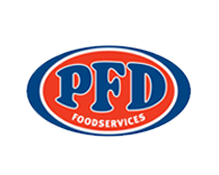Mathematical Modeling
Mathematical modeling is the process of creating mathematical models to describe real-world phenomena.
Mathematical modelling is the process of applying mathematics to a variety of real-world problems. It is a powerful tool that can provide insight into complex systems, from understanding traffic patterns and predicting climate change to designing aircraft. As technology continues to advance, mathematical modelling will become increasingly important for developing effective solutions.
This article examines what mathematical modelling is, how it works, and its various applications in today’s world. We will explore how mathematical models are developed and used in engineering, economics, data science and other fields. Through this discussion, readers will gain an appreciation for the power of mathematical modelling in solving both simple and difficult problems.
Finally, we will take a look at some of the challenges associated with using mathematical models as well as potential future developments in the field. By considering these topics together, readers should be able to appreciate the complexity behind this sophisticated technique while also recognising its potential benefits.
How Do You Define Mathematical Modelling?
Mathematical modelling is the process of constructing mathematical models to represent a phenomenon or system. It includes developing, analysing and interpreting various mathematical tools such as equations, functions, algorithms and computational methods in order to study its behaviour. Mathematical models are utilised in various disciplines including physics, engineering, economics and finance to gain insights into problems that would otherwise be difficult or impossible to solve using analytical approaches alone.
In mathematics education, mathematical modelling can serve as a powerful tool for teaching problem-solving skills and critical thinking. Through the use of existing mathematical models in ruminant production systems for example students can develop their understanding of the underlying principles behind these complex systems. Additionally by exploring different paradigms and approaches when solving math problems they may also come up with creative solutions that could lead to further advancements within the field.
This type of approach provides an opportunity for students to apply their knowledge in meaningful ways while helping them become more adept at tackling challenging problems both inside and outside the classroom setting. In addition, it allows educators to better evaluate student performance on tasks related to real world applications which can offer valuable insight into their strengths and weaknesses.
What Is Mathematical Modelling Examples?
Mathematical modelling is the process of creating a mathematical representation for real-world systems and phenomena. This model can then be used to better understand, analyse, or predict outcomes from those systems and phenomena. Examples of mathematical modelling include traffic jams, probabilistic models in machine learning, math models for predicting phantom traffic jams, traffic models using compartmental models, basic reproduction number (R0) calculation in epidemiology, and extant mathematical models in ruminant production.
When it comes to traffic jams, many mathematicians have developed various different models that attempt to represent this system realistically on paper. These include queuing theory which looks at how vehicles enter and exit queues as well as speed differences between cars due to congestion; agent based simulations which track individual drivers’ behaviours; and graph theory which creates networks with nodes representing roads and edges representing intersections or connections between two roads. All these methods help us better comprehend what leads up to a jam, how they form, and ways in which we could potentially reduce future occurrence of them.
For disease control strategies such as the COVID-19 pandemic response plans implemented by governments around the world, an important metric called R0 is often discussed. This value represents the average number of people who will contract a certain infection from one infected person under current conditions without any interventions or treatments applied yet. Mathematical modelling plays an integral role here as it provides estimates for R0 through compartmental modelling techniques so that public health officials are able to plan out their containment policies accordingly given their resources available. Similarly, animal scientists also use mathematics when studying livestock populations - there exists numerous extant mathematical models in ruminant production where large herds are modelled over time with respect to age structure and reproductive rates all determined mathematically via equations and algorithms allowing farmers more accurately predict herd dynamics over long periods of time.
Mathematical modelling has become increasingly prevalent across many disciplines ranging from biology to economics thus providing researchers with powerful tools that aid discovery within complex scientific fields while shedding light into many intricate systems found in nature today
What Is Mathematical Modelling Examples?
Mathematical modelling is the process of creating mathematical representations, or models, of real-world phenomena. It can be used to gain insight into complex systems and to make predictions about their behaviour. Models are created by using a variety of tools such as probability distributions, differential equations, right triangles, neural networks and kinematic equations.
For example, traffic flow on a circular road can be modelled by explicitly defining the function that describes how cars move along the road. Nonlinear system identification techniques can also be used to create more accurate models based on data collected from experiments in the real world. Additionally, laws of physics can be applied to model physical phenomena like fluid dynamics.
In terms of applications, mathematical modelling is useful for many different areas including engineering design, finance forecasting, medical diagnosis and climate change research. Here are some specific examples:
- Traffic Flow – Mathematical models provide insights into how traffic patterns vary under different environmental conditions such as weather changes or construction work.
- Explicit Function – Mathematicians use explicit functions to describe relationships between two variables and predict future values based on past data points.
- Nonlinear System Identification – Scientists use this technique to identify unknown parameters in nonlinear systems which allows them to better understand complex interactions between components in large ecosystems.
- Probability Distributions – These distributions provide information about the likelihood of certain outcomes occurring given certain inputs so they are extremely helpful when making decisions with uncertain outcomes.
- Laws Of Physics - By applying principles derived from classical mechanics and thermodynamics mathematicians are able to accurately simulate physical processes such as fluid flow or heat transfer in order to analyse complex systems like engines and air conditioning units.
- Differential Equations - This type of equation helps us understand how small changes over time affect larger scale trends such as population growth or temperature fluctuations across an area.
- Right Triangles - Geometric properties in right triangles can be calculated using trigonometric functions which makes it easier to solve problems related to navigation or surveying.
- Neural Networks - Artificial intelligence algorithms rely heavily on mathematics in order to learn new concepts through training data sets and recognise patterns which would otherwise be too difficult for humans alone to observe.
- Kinematic Equations - Motion equations help us calculate displacement velocity acceleration momentum etc., all important factors when studying objects moving around each other at high speeds like planets orbiting stars or rockets launching into space!
Mathematical modelling provides powerful tools for understanding and predicting real-world phenomena which could have far reaching implications for our ability to tackle global challenges and improve human life quality overall.
What Is Mathematical Modeling Used For?
Mathematical modeling has become an increasingly important tool in the modern world. It is a process of constructing mathematical descriptions, or models, that capture the behavior and properties of real-world phenomena. Modeling is used to develop insight into complex systems and processes, as well as provide predictions for future outcomes.
The types of mathematical modeling vary greatly depending on the nature of the problem being solved. Cross validation techniques are commonly used to build more accurate models by comparing different sets of training data with existing models. Linear algebra can be employed to create black box models which are designed to mimic certain behaviors without specifically detailing their inner workings. On the other hand, mechanistic models require comprehensive knowledge about model parameters and how they interact with each other. Statistical models provide insights based on aggregate data analysis whereas artificial intelligence (AI) methods use machine learning algorithms to generate predictive results from large datasets.
Mathematical modeling can be applied across many disciplines such as engineering, economics, chemistry, biology, finance and physics in order to gain better understanding of complex systems or make forecasts about potential scenarios. It also helps scientists uncover hidden relationships between variables which would otherwise remain unknown. As such, it provides a powerful way for researchers to explore multiple hypotheses quickly and efficiently while still retaining accuracy.
What Are The 4 Types Of Mathematical Models?
Mathematical modelling is the process of using a priori information and data to create theoretical models which can be used to understand, explain or predict real world phenomena. There are four types of mathematical models:
- natural sciences,
- state variables,
- objective functions,
- and AI based mathematical modelling.
The first type, natural sciences, uses mathematical equations derived from physical laws to model phenomena such as fluid dynamics or thermodynamics. In this case, all inputs for the equation must be known in order to determine the behavior of the system. As an example, a video side view showing water flowing through a pipe could use Bernoulli's law with pressure measurements taken at various points along the pipe in order to calculate velocity at each point.
The second type involves state variables where a single formula is used to represent multiple parameters that change over time. This approach works best when there is limited available data or when more accurate results need very complex formulas. An example would be a cost formula consisting of different parts (e.g., annual labor costs) that vary over time but always add up to total cost.
Objective functions involve finding optimal solutions by minimizing or maximizing certain criteria without any additional constraints added on top. This method usually requires some form of optimization technique such as gradient descent or simulated annealing and often has many local minima and maxima due to its complexity. An example would be finding the shortest path between two cities while avoiding traffic congestion areas given only initial coordinates and desired destination coordinates.
Finally, AI based mathematical modeling is relatively new technology that combines deep learning algorithms with traditional methods like linear regression or neural networks in order to solve difficult problems in physics or biology more accurately than ever before possible. By leveraging powerful computing resources combined with high-resolution image analysis techniques it can make predictions about how systems will behave under given conditions far better than other approaches alone can manage. One potential application of this kind of modeling might be predicting crop yields after weather changes due to global warming scenarios have been observed over several years' worth of data collected from satellite images or sensors placed within fields themselves.
In summary, these four types of mathematical models offer distinct advantages depending upon what context they are being applied in and allow researchers to gain insights into complex processes ranging from economics and engineering right down through molecular chemistry and biology - offering predictive power beyond what was previously achievable just a few decades ago!
What Are The 5 Components Of A Mathematical Model?
Mathematical modelling plays an important role in the advancement of science and mathematics. It allows scientists to analyse various problems, identify patterns, and make predictions about future events or behaviour. A mathematical model is a set of equations that describe a system's behaviour under certain conditions. There are five components to a mathematical model:
- final examination,
- international journal of science and mathematics,
- extant mathematical models in ruminant production,
- hybrid knowledge and data driven mathematical modelling,
- dissertation committee.
The first component is final examinations which involve testing on fundamentals as well as advanced topics such as systems dynamics, optimisation algorithms, numerical methods etc. International journals of Science & Mathematics provide peer-reviewed articles detailing current research related to mathematical modelling. Extant mathematical models in ruminant production have been developed for both high income countries and low income countries by experts from these countries; these can be used to predict growth rates or mortality rates with reasonable accuracy. Hybrid knowledge and data driven mathematical modelling combine qualitative information about the system behaviour with quantitative parameters; this type of modelling often leads to improved results over traditional approaches. Finally, dissertation committees review thesis work involving complex numerical simulations based on existing literature cited on combustion or other relevant topics.
Mathematical modelling techniques are extremely useful tools for understanding how physical systems behave under different conditions. By incorporating all five components into their analysis - final exams, international journal publications, extant models in ruminant production, hybrid knowledge/data driven models and dissertation committees – researchers gain insight into how best to approach scientific questions they might face in their fields of study. Moreover, through careful consideration of each component’s strengths and weaknesses relative to one another it becomes possible to create more sophisticated models than would otherwise be possible without them.
Conclusion
Mathematical modeling is a powerful tool for scientists and engineers. By using mathematical models, researchers can understand complex phenomena in the physical world and develop theories to explain them. Mathematical models are used to simulate real-world situations and predict outcomes accurately. From helping to design new products, predicting weather patterns, or analyzing disease spread, there is no limit to what mathematics can do.
The four main types of mathematical models include linear programming models, dynamic programming models, discrete optimization models, and stochastic programming models. These various types of mathematical models each have their own unique set of components which must be taken into account when creating an accurate model. Components such as variables, equations, constraints, objective function and solution techniques all play an important role in constructing a successful model.
In conclusion, mathematical modeling is an important part of scientific research that allows for more accurate predictions about the physical world around us. With these tools at our disposal we have access to incredible possibilities that could help shape our future in ways never before imagined. As technology advances so too does the complexity of our mathematical models allowing us to better understand the complexities of nature with ever increasing accuracy.
PREVIOUS NARROW AI GLOSSARY TERM
NEXT NARROW AI GLOSSARY TERM
Mathematical Modelling Definition
Exact match keyword: Mathematical Modelling N-Gram Classification: Mathematical modelling techniques, mathematical modelling software, mathematical modelling algorithms Substring Matches: Mathematics, Modelling Long-tail variations: "Mathematical model building", "Mathematical simulation models" Category: Maths, Modelling Search Intent: Education, Research Keyword Associations: Numerical simulation, Data Analysis, Quantitative Methods Semantic Relevance: Modeling Techniques, Numerical Simulation , Data Analysis Parent Category: Maths Subcategories: Statistics and Probability Analysis, Algebraic Modeling Synonyms: Modeling Techniques, Numerical Simulation , Data Analysis Similar Searches : Statistical Modeling , Optimization Techniques , Algorithmic Design Geographic Relevance : Worldwide Audience Demographics : Students , Researchers , Academics Brand Mentions : IBM , Apple , Microsoft Industry-specific data : Predictive Analytics Tools , Machine Learning Strategies Commonly used modifiers : "Computer," "Simulation," "Software" Topically relevant entities : Statistical Modeling , Optimization Techniques , Algorithmic Design , Predictive Analytics Tools , Machine Learning Strategies."Larry will be our digital expert that will enable our sales team and add that technological advantage that our competitors don't have."
Kerry Smith
CEO, PFD Foods
$1.6 billion in revenue 
"Lion is one of Australasia’s largest food and beverage companies, supplying various alcohol products to wholesalers and retailers, and running multiple and frequent trade promotions throughout the year. The creation of promotional plans is a complicated task that requires considerable expertise and effort, and is an area where improved decision-making has the potential to positively impact the sales growth of various Lion products and product categories. Given Complexica’s world-class prediction and optimisation capabilities, award-winning software applications, and significant customer base in the food and alcohol industry, we have selected Complexica as our vendor of choice for trade promotion optimisation."
Mark Powell
National Sales Director, Lion
"At Liquor Barons we have an entrepreneurial mindset and are proud of being proactive rather than reactive in our approach to delivering the best possible customer service, which includes our premier liquor loyalty program and consumer-driven marketing. Given Complexica’s expertise in the Liquor industry, and significant customer base on both the retail and supplier side, we chose Complexica's Promotional Campaign Manager for digitalizing our spreadsheet-based approach for promotion planning, range management, and supplier portal access, which in turn will lift the sophistication of our key marketing processes."
Richard Verney
Marketing Manager
Liquor Barons

"Dulux is a leading marketer and manufacturer of some of Australia’s most recognised paint brands. The Dulux Retail sales team manage a diverse portfolio of products and the execution of our sales and marketing activity within both large, medium and small format home improvement retail stores. We consistently challenge ourselves to innovate and grow and to create greater value for our customers and the end consumer. Given the rise and application of Artificial Intelligence in recent times, we have partnered with Complexica to help us identify the right insight at the right time to improve our focus, decision making, execution, and value creation."
Jay Bedford
National Retail Sales Manager
Dulux

"Following a successful proof-of-concept earlier this year, we have selected Complexica as our vendor of choice for standardizing and optimising our promotional planning activities. Complexica’s Promotional Campaign Manager will provide us with a cloud-based platform for automating and optimising promotional planning for more than 2,700 stores, leading to improved decision-making, promotional effectiveness, and financial outcomes for our retail stores."
Rod Pritchard
Interim CEO, Metcash - Australian Liquor Marketers
$3.4 billion in revenue 
"After evaluating a number of software applications and vendors available on the market, we have decided to partner with Complexica for sales force optimisation and automation. We have found Complexica’s applications to be best suited for our extensive SKU range and large set of customers, being capable of generating recommendations and insights without burdening our sales staff with endless data analysis and interpretation.
Aemel Nordin
Managing Director, Polyaire
"DuluxGroup is pleased to expand its relationship with Complexica, a valued strategic partner and supplier to our business. Complexica’s software will enable DuluxGroup to reduce the amount of time required to generate usable insights, increase our campaign automation capability, personalise our communications based on core metrics, and close the loop on sales results to optimise ongoing digital marketing activity."
James Jones
Group Head of CRM, DuluxGroup
"Instead of hiring hundreds of data scientists to churn through endless sets of data to provide PFD with customer-specific insights and personalised recommendations, Larry, the Digital Analyst® will serve up the answers we need, when we need them, on a fully automated basis without the time and manual processes typically associated with complex analytical tasks.”
Richard Cohen
CIO, PFD Foods
$1.6 billion in revenue 
"As a global innovator in the wine industry, Pernod Ricard Winemakers is always seeking ways to gain efficiencies and best practices across our operational sites. Given the rise of Artificial Intelligence and big data analytics in recent times, we have engaged Complexica to explore how we can achieve a best-in-class wine supply chain using their cloud-based software applications. The engagement is focused on Australia & New Zealand, with a view to expand globally."
Brett McKinnon
Global Operations Director, Pernod Ricard Winemakers
"70% - 80% of what we do is about promotional activity, promotional pricing -- essentially what we take to the marketplace. This is one of the most comprehensive, most complex, one of the most difficult aspect of our business to get right. With Complexica, we will be best in class - there will not be anybody in the market that can perform this task more effectively or more efficiently than we can."
Doug Misener
CEO, Liquor Marketing Group
1,400+ retail stores 
"The key thing that makes such a difference in working with Complexica is their focus on delivering the business benefits and outcomes of the project."
Doug Misener
CEO, Liquor Marketing Group
1,400+ retail stores 
"Australia needs smart technology and people, and it has been a great experience for me to observe Complexica co-founders Zbigniew and Matt Michalewicz assemble great teams of people using their mathematical, logic, programming, and business skills to create world-beating products. They are leaders in taking our bright graduates and forging them into the businesses of the future."
Lewis Owens
Chairman of the Board, SA Water 
"Having known the team behind Complexica for some years ago now, I am struck by their ability to make the complex simple - to use data and all its possibilities for useful purpose. They bring real intelligence to AI and have an commercial approach to its application."
Andrew McEvoy
Managing Director, Fairfax Media - Digital 
"I have worked with the team at Complexica for a number of years and have found them professional, innovative and have appreciated their partnership approach to delivering solutions to complex problems."
Kelvin McGrath
CIO, Asciano 
“Working with Complexica to deliver Project Automate has been a true partnership from the initial stages of analysis of LMG’s existing processes and data handling, through scoping and development phase and onto delivery and process change adoption. The Complexica team have delivered considerable value at each stage and will continue to be a valued partner to LMG."
Gavin Saunders
CFO, Liquor Marketing Group 
“Complexica’s Order Management System and Larry, the Digital Analyst will provide more than 300 Bunzl account managers with real-time analytics and insights, to empower decision making and enhanced support. This will create more time for our teams to enable them to see more customers each day and provide the Bunzl personalised experience.”
Kim Hetherington
CEO, Bunzl Australasia 
"The team behind Complexica develops software products that are at the cutting edge of science and technology, always focused on the opportunities to deliver a decisive competitive edge to business. It has always been a great experience collaborating with Matthew, Zbigniew and Co."
Mike Lomman
GM Demand Chain, Roy Hill Iron Ore 
"The innovations that the Complexica team are capable of continue to amaze me. They look at problems from the client side and use a unique approach to collaborating with and deeply understanding their customers challenges. This uniquely differentiates what they bring to market and how they deliver value to customers."
John Ansley
CIO, Toll Group 
"Rather than building out an internal analytics team to investigate and analyse countless data sets, we have partnered with Complexica to provide our sales reps with the answers they need, when they need them, on a fully automated basis. We are excited about the benefits that Larry, the Digital Analyst will deliver to our business.”
Peter Caughey
CEO, Coventry Group 
“Complexica’s Order Management System and Larry, the Digital Analyst will provide more than 300 Bunzl account managers with real-time analytics and insights, to empower decision making and enhanced support. This will create more time for our teams to enable them to see more customers each day and provide the Bunzl personalised experience.”
Kim Hetherington
CEO, Bunzl Australasia 
"After an evaluation process and successful proof-of-concept in 2016, we have chosen to partner with Complexica to upgrade the technological capability of our in-field sales force. The next-generation Customer Opportunity Profiler provided by Complexica will serve as a key tool for sales staff to optimise their daily activities, personalise conversations and interactions with customers, and analyse data to generate actionable insights."
Stephen Mooney
Group Sales Capability Manager, DuluxGroup
$1.7 billion in revenue
"After evaluating a number of software systems available in the marketplace, we have ultimately selected Complexica as our vendor of choice for sales force automation and CRM. Given the large SKU range we carry and very long tail of customers we serve, Complexica’s applications are best suited to deal with this inherent complexity without burdening our staff with endless data entry."
Nick Carr
CEO, Haircaire Australia
Australia's largest distributor of haircare products
“Asahi Beverages is Australia’s largest brewer, supplying a leading portfolio to wholesalers and retailers, including some of Australia’s most iconic brands. Last year Asahi Beverages acquired Carlton & United Breweries, which is its Australian alcohol business division. To harness the strength of our expanded portfolio, we partner with our customers to run multiple and frequent trade promotions throughout the year, delivering long-term growth for both our business and theirs. Given the inherent complexity in optimising promotional plans and our continued focus on revenue and growth management, we have selected Complexica as our vendor of choice after a successful Proof-of-Concept of its world-class optimisation capabilities.”
Kellie Barnes
Group Chief Information Officer
Asahi Beverages
"Dulux is a leading marketer and manufacturer of some of Australia’s most recognised paint brands. The Dulux Retail sales team manage a diverse portfolio of products and the execution of our sales and marketing activity within both large, medium and small format home improvement retail stores. We consistently challenge ourselves to innovate and grow and to create greater value for our customers and the end consumer. Given the rise and application of Artificial Intelligence in recent times, we have partnered with Complexica to help us identify the right insight at the right time to improve our focus, decision making, execution, and value creation."
Jay Bedford
National Retail Sales Manager, DuluxGroup
"At Liquor Barons we have an entrepreneurial mindset and are proud of being proactive rather than reactive in our approach to delivering the best possible customer service, which includes our premier liquor loyalty program and consumer-driven marketing. Given Complexica’s expertise in the Liquor industry, and significant customer base on both the retail and supplier side, we chose Complexica's Promotional Campaign Manager for digitalizing our spreadsheet-based approach for promotion planning, range management, and supplier portal access, which in turn will lift the sophistication of our key marketing processes."
Richard Verney
Marketing Manager, Liquor Barons































